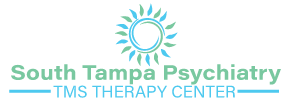The connection between substance abuse and mental health is real, and we are learning more about it every day. People suffering from substance abuse often face simultaneous issues with depression, anxiety, and like conditions, while those with mental health disorders too frequently turn to alcohol or drugs to self-medicate.
When someone faces multiple mental health issues at the same time, they are described as having a “dual diagnosis” or “co-occurring” disorder. An estimated 50 percent of people with severe mental health disorders also confront substance abuse, according to HelpGuide.org, an online mental health information resource.
Addressing these two conditions together isn’t always easy. But when you find the right professional health program, and you can overcome these challenges during dual diagnosis treatment.
Substance Abuse and Mental Health Disorders
The approach to treating substance use and mental health disorders is evolving. Where previously the conditions were handled with separate protocols, today doctors believe the best outcomes result from integrated treatment.
That doesn’t translate to a one-size-fits-all approach. Everyone is different, and treatment plans must be created accordingly, based on each person’s situation. Depending on an individual’s experience, they may take a different treatment path. Someone struggling with heroin abuse and depression will need a different approach than someone with alcohol use disorder and anxiety.
Substance abuse and mental health problems can present in either order. Because the two conditions have similar symptoms, it can be hard to spot a co-occurring condition. As HelpGuide.org puts it, “the signs of depression and marijuana abuse could look very different from the signs of schizophrenia and alcohol abuse.”
The key is to work with treatment professionals who recognize the intersection between mental health and substance abuse. If either condition is left untreated, the cycle of addiction or mental health troubles will continue.
Signs of Co-Occurring Disorders
Unfortunately, it’s not always easy to recognize a co-occurring disorder. But there are some warning signs to look out for that include:
- Use of alcohol or drugs to blur bad feelings or dampen pain
- Magnification of mental health issues, such as depression, while drinking or using drugs
- Family history of either substance abuse or mental health problems
- History of trauma or abuse
- Anxiety or depression even when not on alcohol or drugs
Treatment for Substance Abuse and Mental Health
Most treatment experts agree that substance abuse and mental health conditions need to be treated together. If you only seek treatment for your addiction, many people continue to struggle with mental health issues. Without the appropriate tools to manage these symptoms, many people find themselves returning to using substances. Conversely, if they only find treatment for their mental health condition, a person continues to use drugs or alcohol, which can lead to more mental health problems, or worsen the ones you already have. Fortunately, dual diagnosis treatment is an excellent option for treating these conditions,
While every patient is different, treatment of substance abuse and mental health do have some common elements. Patients typically are first screened and evaluated for their psychiatric health. After identifying any presenting disorders, doctors may prescribe medication to help get those disorders under control. Then patients will be examined to determine the best course for addressing alcohol or drug dependence and addiction. Rehab programs are geared toward helping patients move toward sobriety.
Treatment Options for Dual Diagnosis Conditions
At South Tampa Psychiatry, we strive to provide excellent treatment for each of our patients, whether they suffer from mental health conditions, addictions, or both. For instance, TMS therapy is an excellent up-and-coming treatment option. During TMS therapy, our staff members will place electro-magnets on the skull of the patient and use them to stimulate the areas of the brain that are affected by mental health conditions and substance use. This treatment option is an excellent choice if you’ve tried other methods of addressing your mental health issues, which haven’t been successful. We also provide a wide range of additional therapeutic options, including:
- Individual therapy
- Group therapy
- Family therapy
- Cognitive-behavioral therapy
- Dialectical behavior therapy
Other treatment programs near Palm Harbor, FL could include behavioral therapy, to alter any beliefs or behaviors that may have led to the substance abuse or mental health challenge and so-called “aftercare” programming. Substance use and mental health disorders are both chronic diseases, and, as such, people are susceptible to relapse. Aftercare programs provide continued support after the initial programs end.
It’s an intense period of work, but know that you can come out the other side with the resilience you need to live a positive and happy life.
South Tampa Psychiatry Experts Can Help
The challenges of substance abuse and mental health are daunting. Don’t go through them alone. South Tampa Psychiatry offers integrated treatment programs for dual-diagnosis disorders near Palm Harbor, built around specific centers of excellence such as our:
- Anxiety treatment center
- Bipolar treatment center
- Depression treatment center
- PTSD treatment center
We will provide a thorough assessment and build a treatment plan for Palm Harbor residents to address your substance abuse and mental health challenges. Contact us today at 866.273.5017 for a consultation.







